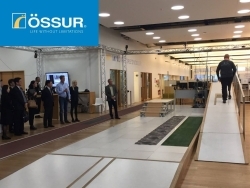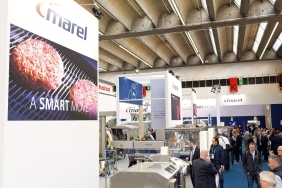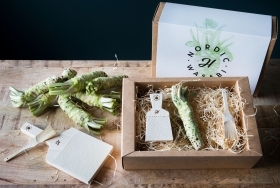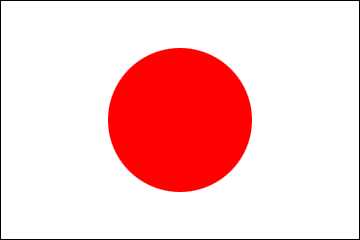From Ambassador
2019/6/14
Icelandic companies making a big leap into international markets





Photo courtesy: Össur, Marel, LYSI, 66 North, Nordic Wasabi
Currently, about 30,000 companies are registered in Iceland and 90% of them are small-sized businesses, with fewer than 10 employees. Among those companies, some have grown to become leading global companies by targeting a specific market and utilizing advanced technologies. Today, I would like to introduce some of these successful companies that I have visited so far.
Firstly, there is Össur Corporate that designs and manufactures non-invasive orthopedics equipment. Founded in 1971, the company has the largest market share in the world in sport prosthetic and has also been chosen as one of “The World's 50 Most Innovative Companies”. It is also a well-known fact that Paralympic medalists from many countries, including Japan, use their products.
Another company is Marel, which specializes in designing and manufacturing of equipment, systems, software and services to the poultry, meat and fish processing industries. Founded by 3 students at the University of Iceland in 1977, the company has become a topnotch company with over 4,000 employees and more than 100 distributors all over the world, including Japan.
More recently, I also had an opportunity to visit a company called LYSI which manufactures and sells Omega-3 capsules and liver oil extracted from cod and shark both in Iceland and in more than 70 countries overseas. We discussed possibilities of exporting their products to the Japanese market.
After these visits, I came to realize several points that those companies have in common.
One is that the origin of their business is rooted in the country’s traditional industry, fisheries. One of the catalysts for the establishment of Össur was to manufacture a prosthetic foot for a fisherman who lost his leg while working at sea. Marel’s initial product was an automatic fish scaling machine. And for LYSI, relationship with fisheries is obvious. In addition, a well-known Icelandic outdoor clothing brand 66 North, also becoming popular in Japan, started out as a producer of clothing that protects fishermen from the severe weather in the Arctic regions.
The second common denominator is that those companies either developed or adopted high technology and sought international markets, leading them to become global competitors.
And the third common trait is that each company nurtures an entrepreneurial spirit within their organization. To be precise, an entrepreneurial spirit is not limited in these corporations. I feel entrepreneurship is widely practiced in Iceland and I assume it has everything to do with the country’s education system, which focuses on “identifying problems and providing solutions”.
In fact, according to the recent survey by “the Global Entrepreneurship Monitor” conducted jointly by American and British universities, an entrepreneurial environment in Iceland is ranked the 7th out of 137 countries (Japan: the 28th). It may be safe to say that Iceland is also blessed with an environment which makes starting business easier.
Finally, I would like to mention a recent start-up business case that relates to Japan. Two engineering students at the University of Iceland came up with an idea of farming wasabi in Iceland and participated in a business plan contest hosted by a local bank in 2015. They won the contest, raised additional money from other investors and started the business. They harvested the first batch of wasabi in 2017 and are now successfully exporting Icelandic wasabi to other Nordic states and the European continent.
This is an excellent example of business that takes advantage of Iceland’s clean water, geothermal energy and advanced information technology.
